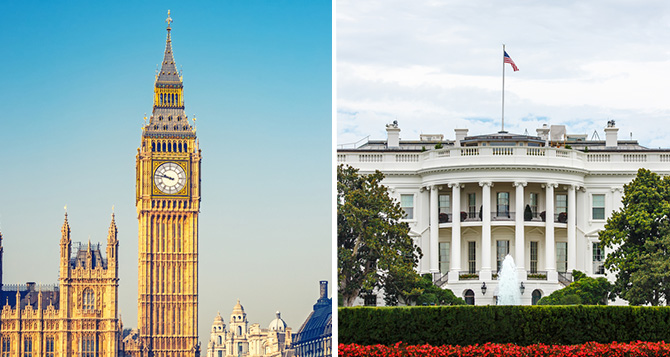Brexit, Populism and Trump
by Libby Cantrill, PIMCO
The affirmative vote for Brexit has led some to draw conclusions about what it means for Donald Trump’s candidacy here in the U.S. Both the “Leave” decision and Trump’s rise are fueled by voters’ anger at being left behind by globalization, nostalgia for a different time and a resulting spirit of protectionism, nativism and anti-incumbency. Supporters of Brexit also look a lot like Trump supporters, who are typically older, white, non-college-educated and from more rural areas.
While there are similarities, it is important to keep in mind some critical differences. Foremost, voting in favor of a referendum is different from voting for a candidate. Brexit was a referendum on globalization and immigration (among other things), and while Trump’s candidacy involves those issues as well, voting for Trump (or Clinton) is casting a vote for more than just ideas, but for temperament, experience and competence. While some agree with Trump’s message, recent polling (with all of its caveats) indicates that the vast majority of the electorate (65%–70%) has a negative view of him as the messenger.
Another key difference is that the U.S. general electorate is considerably less white than that of the UK: According to the last census, approximately 15% of the British population is non-white, versus 31% of the electorate in the U.S., many of whom are recent immigrants. This means there is more resistance to anti-immigrant rhetoric in the U.S. than in the UK. What’s more is that Trump’s base (blue-collar, white) is estimated to be only about 34% of the U.S. electorate, indicating that Trump has to expand his base significantly beyond this cohort to win the general election.
What could be more of a boon for Trump than the Brexit vote itself is a continuation of the related market sell-off: Of the past 22 presidential election cycles, the direction of the S&P stock index has correctly predicted the outcome of 19 elections. In other words, a positive pre-election return has led to a status quo outcome, while a negative return has led to a change of party in the White House.
Even if Brexit does not help Trump (or only helps him incrementally), there will continue to be policy ramifications from the growing populism in the developed world (consistent with PIMCO’s Secular Outlook), notably in the realm of trade: The Brexit vote simply underscores how much of a third rail the issue of trade continues to be. The Trans-Pacific Partnership (TPP), which already had a low chance of being ratified in 2016, is now very unlikely to see a vote in Congress, even in the “lame duck” session. The current climate also does not bode well for the Trans-Atlantic Trade and Investment Partnership (TTIP), the trade agreement that the U.S. has been negotiating with the EU since 2013.
Bottom line? While populism in developed countries is real, there are meaningful differences between the UK and U.S. stories that are important to keep in mind in the run-up to November.
Copyright © PIMCO













